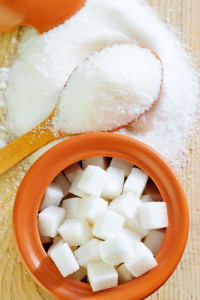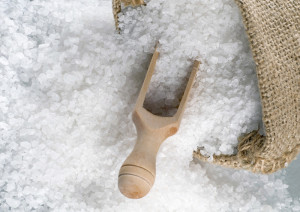Discover The Bitter Truth – Why Sugar and Salt Can Play Havoc with Your Health.
Sugar……many people will tell you it is now on the ever growing list of toxins we must avoid if we want to have good health. That maybe so, but who doesn’t enjoy a sweet treat every now and again? We all do and there is nothing wrong with that as long as it is in moderation – just like everything else.
 The problem is we have become accustomed to having something sweet with almost every meal. Even between meals for a quick snack. And this leads to numerous lifestyle diseases you may not even be aware of.
The problem is we have become accustomed to having something sweet with almost every meal. Even between meals for a quick snack. And this leads to numerous lifestyle diseases you may not even be aware of.
The television show Catalyst on the ABC in Australia did an excellent program called Toxic Sugar – Is sugar in the diet driving the obesity crisis? The link has an 18 minute video as well as a transcript. It is recommended viewing for everyone.
While humans have eaten sugar for centuries, it was always in the form of natural sugar in fruits and berries. Today the sugar we eat is refined sugar, and this is what causes havoc with your body.
Did you know consuming refined sugars can produce health problems such as arthritis, obesity, diabetes, headaches, osteoporosis, depression and it also prevents your immune system from functioning correctly?
Your body stores refined sugar as fat and if you eat too much you will start to pile on the weight. Simple as that!
Consuming too much sugar can cause your body to not want to lose weight, no matter how hard you try. If this sounds like you then start watching how much sugar you are consuming on a daily basis. And be careful…….sugar is hidden everywhere.
So how do you still satisfy your sweet cravings without damaging your health?
Start off by replacing your sweet treats with natural sweets such as fresh fruits. This natural sugar will provide your body with energy as well as essential nutrients which are found in all fruits. This leads to improved health and weight loss.
The worst types of products to include in your daily diet are soft drinks, supermarket reconstituted fruit juices (which often have labels claiming they are a fresh juice), cakes and biscuits, sugar in your tea and coffee and eating processed foods. Also, get into the habit of reading labels (quick tip – ‘good for you food’ doesn’t have a label – e.g. fresh salmon, banana, free range chicken, broccoli). You might also be surprised how much sugar is in your favorite breakfast cereal, sauces and condiments.
Anything with more than 4 grams of sugar per 100 grams is too much so put it back on the shelf and look for something else.
Also be wary of products marketed as low fat. They are usually higher in sugar than the full fat version because once you take out the fat you take out a lot of the flavour. This is usually replaced with sugar and salt so again, check the label.
Even artificial sweeteners such as aspartame are bad for you and have been shown to interfere with your body and cause additional health problems. Try to reduce or eliminate the amount of sugar in your morning coffee and swap out energy drinks and colas for plain water with a slice of fresh lime or lemon in it.
Salt:
This is another one of those ingredients that seems to be in all our foods, especially pre-packed processed foods. While a small amount of salt is good for you, almost everyone over uses the salt shaker!
Again read food labels and see how much salt has been added to these foods before you put them in your trolley.
The Scientific American suggests that “It’s Time to End the War on Salt” – their article goes on to say, “Worries escalated in the 1970s when Brookhaven National Laboratory’s Lewis Dahl claimed that he had “unequivocal” evidence that salt causes hypertension: Scientific tools have become much more precise since then, but the correlation between salt intake and poor health has remained tenuous.”
 So in other words, what I get from that is, make sure you do your own research and find out how much salt in your diet is right for you.
So in other words, what I get from that is, make sure you do your own research and find out how much salt in your diet is right for you.
News Medical asks, “Why do we need salt?” In part they go on to say, “Sodium plays a significant role in the body. In particular, it regulates volumes of fluid in the body. It also aids the uptake of various other nutrients into cells.”
Another big issue with consuming too much salt is that it leads to water retention. This causes weight gain, breathing issues and can worsen inflammation that you may already have. If you always feel bloated and thirsty you may be consuming way too much salt in your diet.
The best way to deal with salt is to switch to a good quality sea salt or Himalayan salt is a great alternative as it includes additional minerals. This type of salt is pink and looks also good on your table.
Do not totally eliminate salt from your diet, as your body does require salt to function properly. Just work on NOT adding extra salt to everything you eat, unless they really need them, and then use good quality sea salt.
If you are struggling to lose weight, or are always feeling tired, bloated and not quite right, then pay attention to these small white grains (either sugar or salt or maybe even both) you are adding to your foods. They could be playing havoc with your health!
Leave a Reply